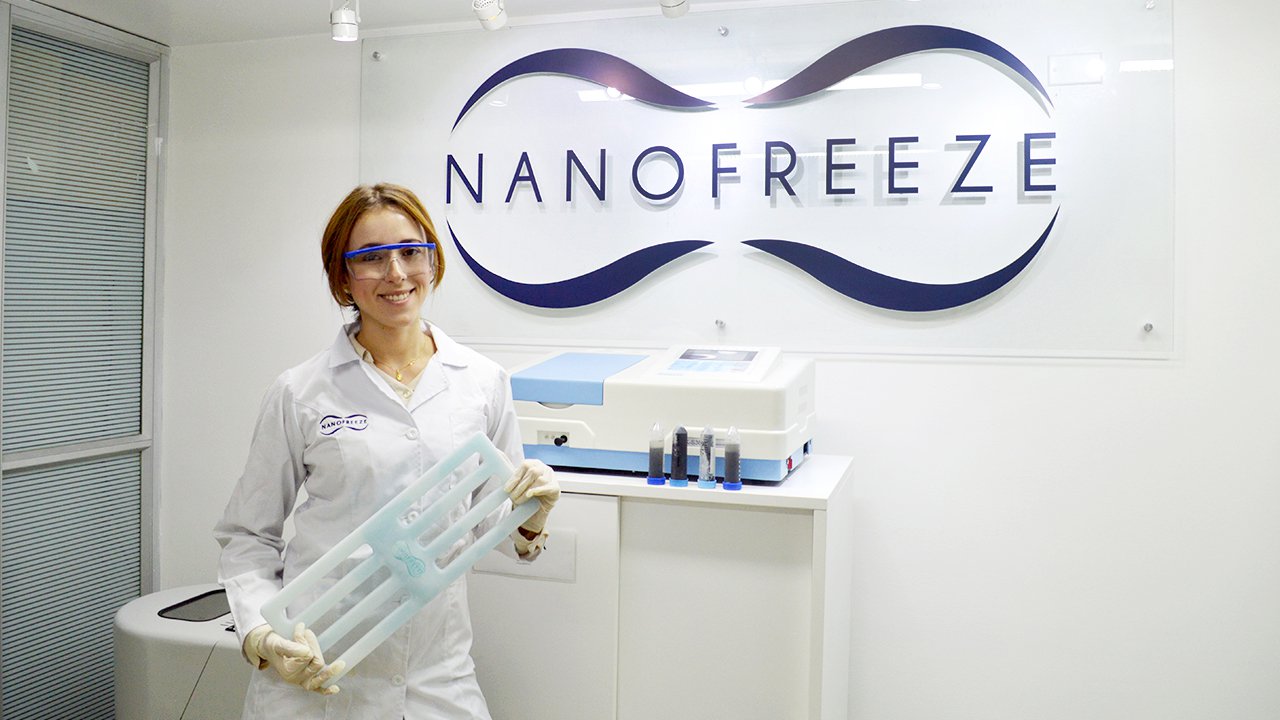Cooling and
heating systems account for nearly half of global energy consumption, according
to the International Renewable Energy Agency (IRENA). The International Energy
Agency predicts that the climate crisis will further increase the demand for
cooling devices. Only one-third of the world’s population living in hot
climates currently has access to cooling systems, meaning demand is expected to
rise as temperatures continue to climb, according to a scientific study
published in Nature.
Isabel
Pulido, a biodesigner from Universidad de los Andes (Colombia), has developed a
solution called NanoFreeze, which aims to revolutionize the cooling industry
through the use of bionanotechnology. This breakthrough promises to
significantly reduce energy consumption and CO₂ emissions while efficiently
maintaining the cold chain.
NanoFreeze
focuses on the development of cooling products based on a form of
bionanotechnology that enables water to freeze at temperatures above 2°C and
remain solid for up to 200 hours without requiring additional energy, depending
on the thermal insulation used. The solution, developed through the
functionalization of proteins at the nanoscale, is capable of doubling the heat
capacity of water—prolonging the preservation of food and medicine under
optimal conditions for longer periods.
In addition
to improving refrigeration performance, this innovation also has a measurable
impact on energy consumption.
“NanoFreeze
measures energy savings through electricity bills, using a smart wattmeter
installed on each refrigerator two months before the panel implementation.
After four months of deployment in Colombia and Mexico, NanoFreeze has reduced
the carbon footprint by five tons and lowered energy costs by 35% across more
than 100 refrigerators,” explains its creator.
The idea
originated from research Pulido conducted during her university studies. She
was working on a bioluminescence process but came to realize that for the
rural families she visited, food preservation was a greater challenge than
lighting. “One of the
most impactful testimonies I heard was from a family who said that if they
slaughtered a chicken, they had to eat it the same day or it would spoil,” she
recalls.
With the
creation of NanoFreeze, Pulido found her driving purpose: “I knew I
was solving not only a serious environmental problem, but also a social
one, offering a solution for many rural families.” NanoFreeze
aims to be installed in 15 million refrigerators, which could reduce CO₂
emissions by 4.8 million tons per year, based on the company’s calculations.
Pulido anticipates several challenges ahead, including the need to establish
manufacturing plants, forge strategic partnerships to scale production, and
compete with major industry players.
AB InBev,
OXXO, Terpel, Postobón, and PepsiCo are some of the companies already in
discussions with NanoFreeze to improve their refrigeration systems. For the
first two, Pulido’s company has completed a pilot project to transition their
commercial cooling systems toward more sustainable models.
Pulido was
recognized as a One Young World in Belfast Speaker & Ambassador, won the
Startup World Cup in Silicon Valley as Latin America’s representative, and
placed among the global Top 10 finalists. She was also named one of MIT
Technology Review in Spanish 35 Innovators Under 35.




